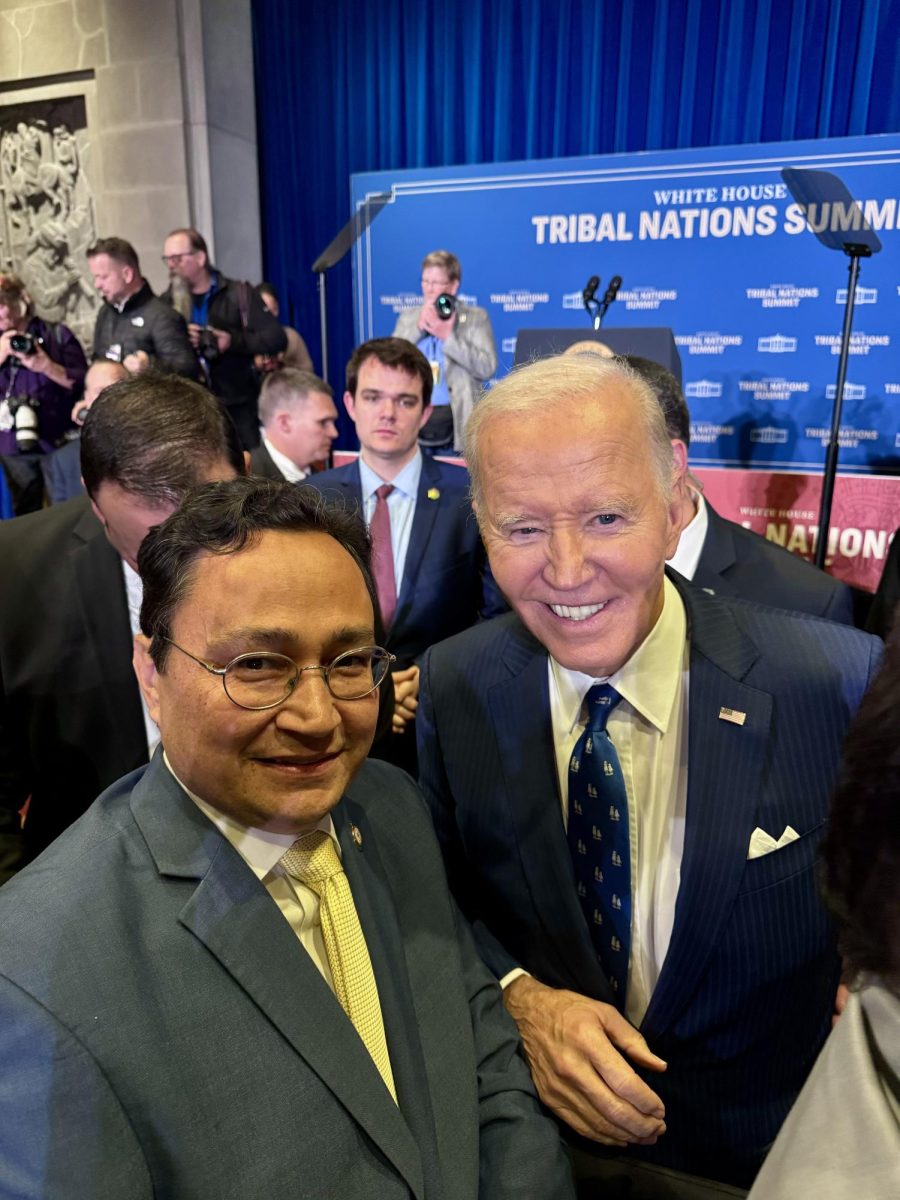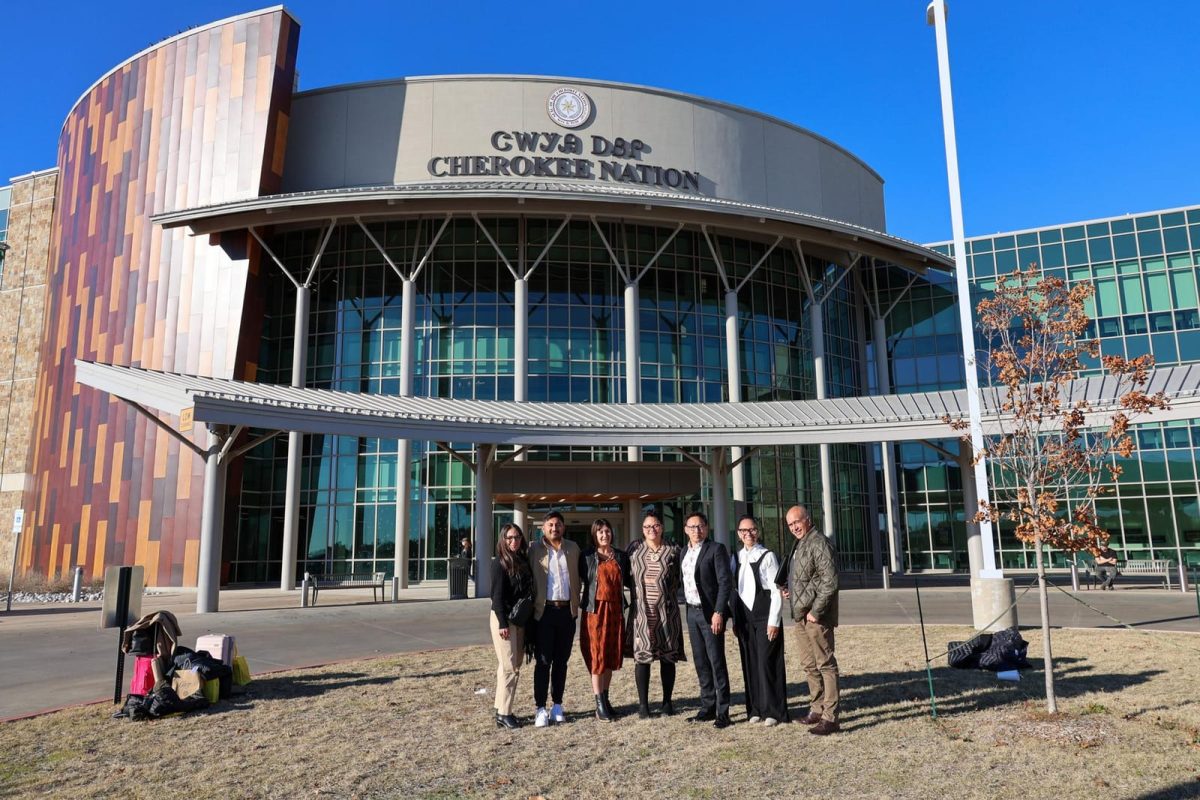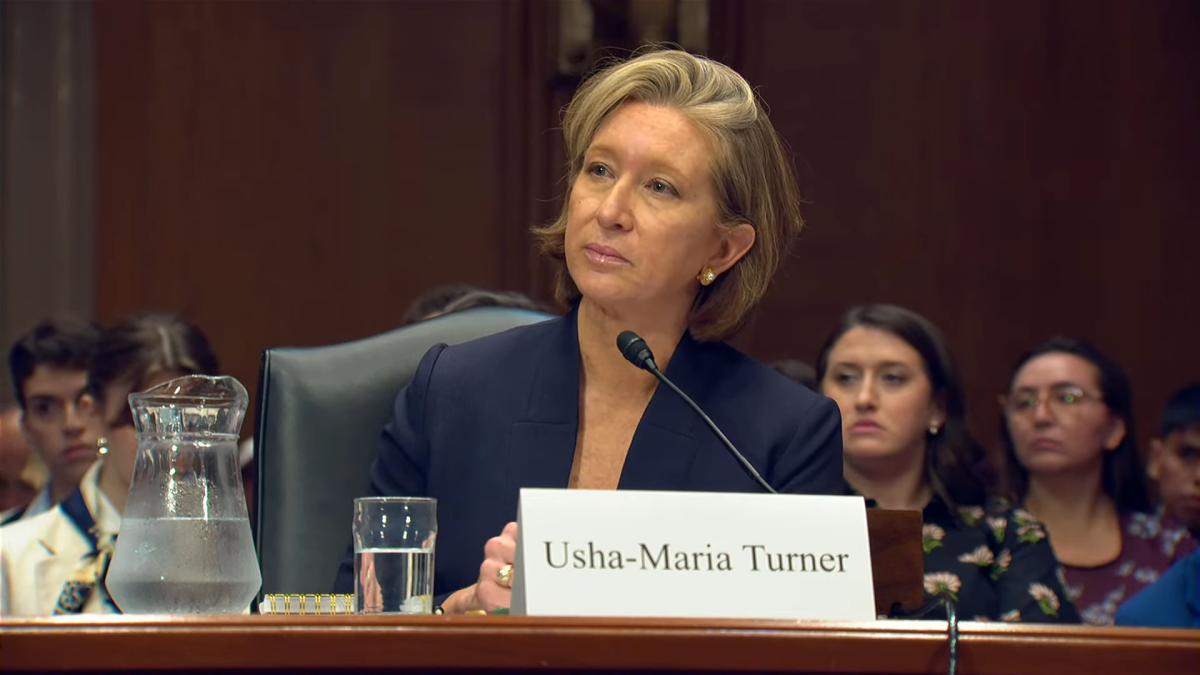WASHINGTON – Secretary of the Interior Deb Haaland didn’t mince any words when she called Pres. Joe Biden the best president for Indian Country of her lifetime during this year’s final White House Tribal Nations Summit.
“This is the president and an administration that truly sees Indigenous people and has worked tirelessly to address the issues in Indian Country that have long been underfunded or outright ignored,” Haaland said.
Cherokee Nation Chief Chuck Hoskin Jr., who attended the recently concluded summit at the Department of the Interior, told Gaylord News he thinks Biden has been one of the most consequential presidents for Native Americans.
“That’s not a partisan statement. That is a statement based on my objective assessment,” Hoskin said. “Some of what changed has made national news, the effort to not only apologize for the injury done by the boarding school era but to do it based on a thoughtful study.”
In October, Biden formally apologized for the federal government’s role in running boarding schools where Native American children were often abused and neglected. The purpose of the boarding schools was to eradicate aspects of Native American culture.
One of the most worrisome results of the era is the loss of Native American languages.
Ignacio Montoya, a linguistics professor at the University of Nevada-Reno, wrote in an article for Nevada Today that as a result of the boarding school era, and other efforts at eliminating Native American culture, there has been a “dramatic decline in the number of speakers of Native American languages.”
At this week’s summit, Biden announced a 10-year plan to revive Native American languages.
“Over three-quarters of the remaining native languages are in danger of being lost,” Biden said. “That is why today my administration is moving ahead on a 10-year plan to revive native languages in a serious effort. It is a vision that works with tribes to support teachers, schools, communities, organizations in order to save Native languages from disappearing.
“This matters, it is part of our heritage and who we are as a nation,” Biden said.
During his presidency, Biden also took steps to improve the infrastructure in Indian Country and tribal lands.
“The funding that came to Indian Country for infrastructure, whether it’s health care construction, health care operation dollars, whether it’s for roads and bridges, those things were part of an administration that was trying to invest in infrastructure for the country,” Hoskin said. “But they didn’t forget about Indian Country, and in fact, made Indian Country a prominent part of those investments.”
The Biden administration has invested more than $45 billion into Indian Country: $32 billion, the largest direct federal investment in Indian Country in history, comes from the American Rescue Plan; $13billion was invested through the Bipartisan Infrastructure Law and more than $700 million was invested through the Inflation Reduction Act.
“Between infrastructure investments and this attempt at building stronger government-to-government relationships, I would definitely provide this (Biden) administration some bonus points,” said Clifton Cottrell, a Native American studies professor at the University of Oklahoma.
In a statement, Choctaw Nation of Oklahoma Chief Gary Batton said federal partnerships are essential in safeguarding tribal sovereignty and ensuring the best outcomes for Native Americans.
“President Biden’s initiatives to preserve Native languages, including our Choctaw language, and to address other concerns are critical steps toward a stronger partnership between our nations,” Batton said.
With Biden set to leave office in just over a month, Hoskin and others aren’t just reflecting on his presidency. They’re also looking forward, to what a second Trump administration will bring.
During his first term, Trump did not hold a single summit. President George W. Bush and President Barack Obama held annual summits, although they were then known as the “White House Tribal Nations Conference.”
It’s unclear if Trump will maintain the summit’s annual status.
“Every president has their own style. Some like to do things themselves, some like to delegate,” Cottrell said. “Trump is a very hard man to predict.”
While Trump may be hard to predict, Hoskin is willing to give it a try.
“I think many tribal leaders, like myself, are bracing for this (White House Tribal Nation Summits) to be something that ends with the Biden administration,” Hoskin said. “But we’re hopeful that it continues because it’s always a great opportunity to engage with federal partners.”
Whether the summit remains an annual event or not, tribal leaders will be looking to advocate for their needs. For Hoskin, the needs at the top of his priority list are healthcare, language revitalization and housing.
“We’re seeing the path to homeownership being too narrow, and then if you look at how that affects marginalized populations, it’s even worse,” Hoskin said. “It’s particularly bad in Indian Country.”
According to the Joint Center for Housing Studies of Harvard University, 56.7% of Native Americans own their home compared to 71.7% of white Americans.
Regardless of what the issues are, Batton and Hoskin remain hopeful that Native issues will transcend partisanship.
“Indian Country issues aren’t partisan and need not be partisan,” Hoskin said. “We’re always hopeful that a president in the United States can be a champion for Indian Country.”
“That was certainly true with President Biden.”
Kevin Eagleson is reporting from Gaylord News’ Washington bureau this fall as part of an OU Daily scholarship.
Gaylord News is a reporting project of the University of Oklahoma Gaylord College of Journalism and Mass Communication. For more stories by Gaylord News go to GaylordNews.net







